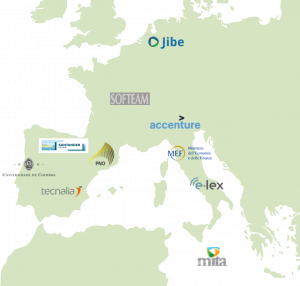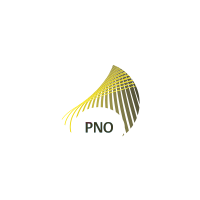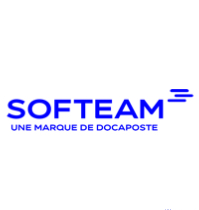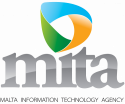PNO Innovation N.V. (part of the PNO Group), is specialised in Grants and Innovation Management, providing support services to private and public organizations in Innovation processes, Technology Transfer, IT solutions and funding for research, development and innovation.
PNO is a European group, made up of a pool of around 250 professionals including scientists, engineers, consultants, a Brussels policy advisory service, as well as financial and legal experts, with consolidated experience in innovation processes and funding in international working environments (Europe, Latin America, and USA).
Created in 1985, PNO is a high-growth knowledge intensive company, operating in 12 European countries. The growth is explained by a unique combination of services, based on profound insight in research, innovation and funding strategies, up-to-date knowledge and over 25 years of hands-on expertise with more than 500 funding programmes in most EU countries. The company has the proven capability to link innovation suppliers and adopters from a unique Europe- wide client network in multiple sectors, using advanced methodologies, ICT solutions and proprietary on-line networking. PNO has its own community building, management and dissemination tools, the core one being Innovation Place © www.innovationplace.eu. With Innovation Place, PNO offers its clients an innovative service concept, up-to-date web-based tool, knowledge base and European wide communities to manage their own innovation, projects, funding knowledge and networks, combined with the best consultancy support.
As a result PNO has developed extensive and real-life expertise in setting up, managing and contributing to complex international technology transfer consortia, communities, processes and projects. PNO supports over 2000 clients throughout Europe, annually developing over 250 European consortia, funding proposals, and fostering their successful implementation in many technology domains through management, technology intelligence, exploitation and dissemination services. PNO is Europe’s largest independent public funding advisory – annually raising over € 1 billion for its clients.
PNO projects involve both small, medium sized and multinational industries, as well as Universities and Research institutes, amongst which are European and international leaders such as Amsterdam Schiphol Airport, Booking.com, DOW Chemical, CERN, Finmeccanica/Selex, Fraunhofer Institute, Harbours of Rotterdam and Antwerp, HP, Intel, Microsoft, Philips, Procter & Gamble, Solvay, TomTom, the Universities of Bordeaux, Ghent, Leuven, Rome, Naples, Utrecht, Warwick, Politecnico of Milano, Turin and many more.
Furthermore, PNO manages several European EC funded network projects to build Communities of Practice of valuable SMEs, large industries, Universities and Research Institutes, to further innovation in specific sectors, such as Critical Raw Materials (CRM_INNONET), Photonics (Light Jumps), the bio-based product market (BIOCHEM, BIO-TIC and BioLinX), transport (SMART), security (OSMOSIS), open source and embedded software (SHARE), Chemical Regions for Resource Efficiency (R4R) to name a few.
Leveraging on its insights and knowledge on innovation methodologies and practices, PNO increasingly supports its clients as partner in strategic European research, development and innovation projects, to carry-out market and functional analyses, develop and implement road mapping, dissemination and exploitation strategies and business plans and support professional project management. Examples are the recently started H2020-SPIRE-07 project REE4EU, to develop new technologies to recover and recycle Critical Raw Materials (http://www.ree4eu.eu/ ) lead by SINTEF in which PNO supports stakeholder analyses and business modelling, the recently concluded FP7-COOPERATION-KBBE project BIOTIC, to develop a European roadmap to overcome hurdles for industrial biotechnology, led by EUROPABIO (http://www.industrialbiotecheurope.eu/bio-tic/ ).
As key advisor to the European Technology Platforms (ETP) WssTP, SusChem, the European Council for the Chemical Industry (CEFIC) and the Association SPIRE PNO supports the development of medium to long term research and innovation agendas for water, resource efficiency, amongst others supporting the drive towards the circular economy.
As such PNO co-managed the process of developing a Public Private Partnership and the SPIRE 2030 Innovation Roadmap (www.spire2030.eu) for the sustainable process industry, as input to HORIZON 2020. Recently PNO supported the development of the new Water Vision and Strategic Innovation and Research Agenda (SIRA) for WssTP “The Value of Water: multiple waters for multiple purposes and users”.
Role in the project
Provide support to innovation management, exploitation and WP7 leadership












 info@poseidon-h2020.eu
info@poseidon-h2020.eu

